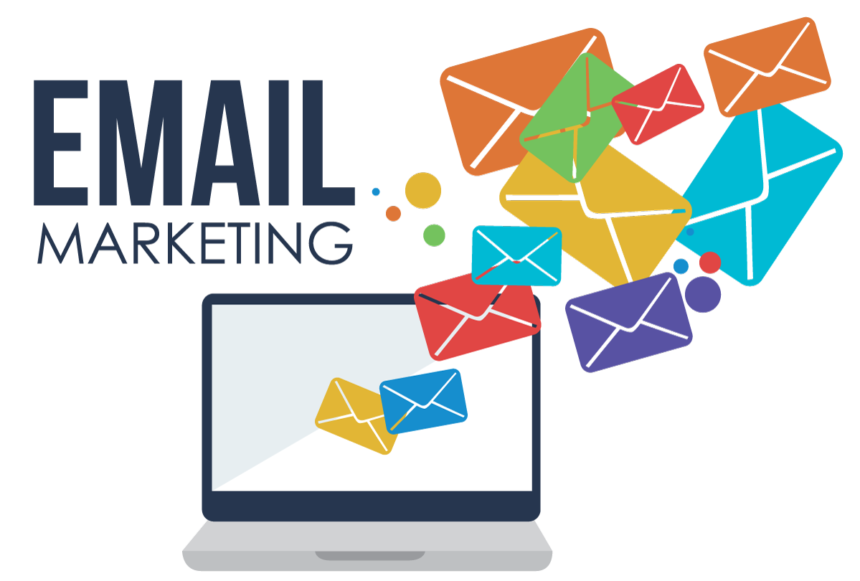Email marketing remains one of the most effective tools for engaging audiences, building relationships, and driving conversions. However, its true power lies in scalability. As businesses grow, their marketing efforts must expand to cater to larger audiences while maintaining personalization and efficiency. Creating a scalable email marketing campaign requires strategic planning, effective tools, and a deep understanding of audience needs.
This article explores the steps to design and implement an email marketing campaign that grows with your business while delivering consistent results.
Importance of Scalability
Scalability in email marketing refers to the ability of your campaign to accommodate an increasing number of subscribers without sacrificing quality or effectiveness. A campaign that is not scalable may become inefficient or unsustainable as your audience grows, leading to diminished returns.
Scalable email marketing ensures that your campaigns remain personalized, automated, and cost-effective even as your subscriber list expands. It also allows you to maximize the lifetime value of your customers by nurturing relationships over time.
Defining Your Goals and Audience
Before building a scalable email marketing campaign, it is crucial to define your objectives. Whether your goal is to drive sales, increase website traffic, or nurture leads, having a clear purpose will guide your strategy.
Equally important is understanding your target audience. Segmenting your subscribers based on factors such as demographics, behavior, and preferences allows you to tailor your messaging effectively. Personalized content increases engagement and helps build long-term relationships, laying the foundation for a scalable campaign.
Choosing the Right Tools and Platforms
The success of a scalable email marketing campaign heavily depends on the tools and platforms you choose. A robust email marketing platform should offer features such as automation, segmentation, analytics, and integration with other tools like customer relationship management (CRM) software.
For example, platforms like Mailchimp, HubSpot, and Klaviyo provide advanced capabilities for creating dynamic campaigns. Automation tools enable you to send targeted emails at scale without manual intervention, ensuring efficiency as your audience grows.
As demonstrated by companies like The Elite Firms, leveraging sophisticated tools allows businesses to streamline their marketing efforts and maintain high levels of personalization. By integrating these tools into your campaign, you can effectively manage and scale your email marketing strategy.
Crafting High-Quality Content
Content is at the heart of any successful email marketing campaign. To build a scalable campaign, you need to create high-quality, relevant, and engaging content that resonates with your audience.
Start by developing a content strategy that aligns with your brand message and audience needs. Focus on creating content that adds value, whether it’s educational articles, promotional offers, or personalized recommendations.
Scalable email marketing campaigns often utilize evergreen content—timeless materials that remain relevant over time. This approach reduces the need for constant content creation and ensures consistency across campaigns. Additionally, dynamic content features, such as personalized product recommendations based on user behavior, can enhance relevance and engagement.
Segmenting Your Audience for Personalized Messaging
Segmentation is a critical component of scalable email marketing. Dividing your subscriber list into smaller groups based on specific criteria allows you to send targeted emails that resonate with each segment.
Effective segmentation can be achieved by analyzing subscriber data, such as purchase history, browsing behavior, and geographic location. For instance, a retail business might create separate segments for customers interested in men’s and women’s fashion. Each segment would receive tailored content highlighting relevant products and offers.
By delivering personalized messages to each audience segment, you can increase open rates, click-through rates, and conversions. This targeted approach also ensures that your campaigns remain effective as your audience grows.
Automating Campaign Processes
Automation is essential for building a scalable email marketing campaign. Automated workflows enable you to send timely, relevant emails to subscribers without manual effort, freeing up resources for other tasks.
Examples of automated workflows include welcome sequences, abandoned cart reminders, and post-purchase follow-ups. These workflows can be triggered by specific actions or events, ensuring that subscribers receive the right message at the right time.
Automation also allows you to scale your campaigns by handling large volumes of emails efficiently. For example, a growing e-commerce business can use automation to send personalized order confirmations and shipping updates to thousands of customers simultaneously.
Analyzing and Optimizing Campaign Performance
Scalability requires continuous improvement. Regularly analyzing the performance of your email marketing campaigns provides valuable insights into what works and what doesn’t. Metrics such as open rates, click-through rates, and conversion rates can help you evaluate the effectiveness of your content, design, and strategy.
Use A/B testing to experiment with different subject lines, email designs, and calls-to-action. This process allows you to identify the most effective elements and refine your campaigns accordingly.
As your audience grows, it’s important to revisit and adjust your strategy to ensure continued relevance and impact. A scalable campaign evolves with your business, adapting to changes in audience preferences, industry trends, and marketing goals.
Ensuring Deliverability and Compliance
Deliverability is a key factor in the success of scalable email marketing campaigns. High deliverability rates ensure that your emails reach your subscribers’ inboxes rather than being marked as spam.
To improve deliverability, maintain a clean email list by regularly removing inactive or invalid addresses. Use double opt-in processes to verify subscribers and ensure compliance with email marketing regulations, such as GDPR and CAN-SPAM.
Compliance is essential for building trust and avoiding penalties. Clearly outline your privacy policy and provide an easy way for subscribers to opt out of receiving emails. A transparent and ethical approach to email marketing fosters long-term relationships with your audience.
Scaling Your Campaign with Data-Driven Strategies
Data is the backbone of scalable email marketing. Analyzing subscriber behavior, engagement patterns, and campaign performance allows you to make informed decisions and optimize your strategy.
Data-driven insights can help you identify trends, predict customer needs, and deliver timely, relevant content. For example, analyzing purchase history can help you recommend complementary products or services, increasing the value of each customer interaction.
Advanced analytics tools also enable you to measure the ROI of your campaigns, demonstrating the impact of email marketing on your business goals. This information is invaluable for allocating resources and scaling your efforts effectively.
Integrating Email Marketing with Other Channels
A scalable email marketing campaign doesn’t exist in isolation. Integrating your email efforts with other marketing channels, such as social media, content marketing, and paid advertising, creates a cohesive strategy that amplifies your reach and impact.
Cross-channel integration allows you to leverage the strengths of each platform while maintaining a consistent brand message. For instance, promoting your email newsletter on social media can attract new subscribers, while linking to blog posts in your emails can drive website traffic.
A holistic approach to marketing ensures that your campaigns are aligned and mutually reinforcing, maximizing their effectiveness as your business grows.
Final Thoughts
Building a scalable email marketing campaign requires careful planning, strategic execution, and a commitment to continuous improvement. By defining your goals, leveraging the right tools, and focusing on personalization and automation, you can create campaigns that grow with your business while delivering exceptional results.
As demonstrated by successful companies like Elite Firms, a data-driven and customer-centric approach to email marketing can drive engagement, conversions, and long-term success. By investing in scalability, you can unlock the full potential of email marketing and position your business for sustained growth in a competitive digital landscape.








